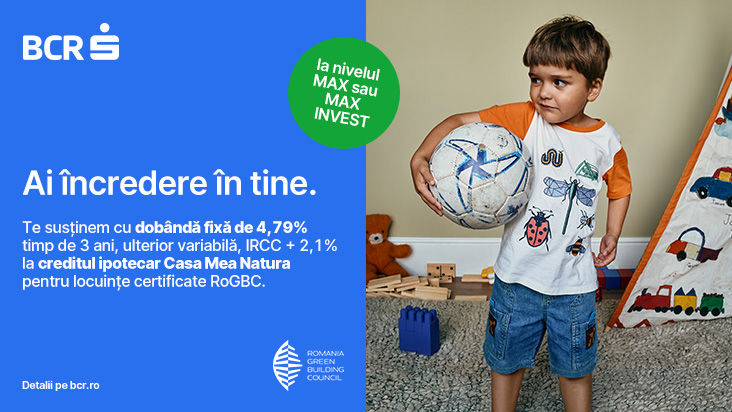SMAFIN Expanded Roundtable – A Success in Advancing Sustainable Financing for Energy Efficiency
- Romania Green Building Council

- Apr 15, 2025
- 3 min read

A Fruitful Dialogue Among Key Stakeholders in the Field of Energy Efficiency
The second SMAFIN Expanded Roundtable, held on April 9, 2025, at the Marshal Garden Hotel in Bucharest, brought together 51 experts and specialists in the field of energy efficiency to discuss sustainable financing for energy efficiency in Romania.
The event was organized by the Romanian partners of the SMAFIN Expanded project – the Romania Green Building Council (RoGBC) and the Pro-nZEB Cluster – with substantial support from the Government of Romania through:
The Department for Sustainable Development
The Ministry of Investments and European Projects
The Ministry of Development, Public Works and Administration
The Ministry of Energy
The Ministry of Finance
This event continues the series of sustainable energy investment forums previously initiated by the European Commission (2018–2019), as well as those carried out under the SMAFIN project (2021–2023), and is funded by the European Union through the LIFE Programme.
Diverse and Representative Participation
The event brought together representatives from all key sectors involved in the energy transition:
Central and local public authorities
The private sector
Civil society
Academia
Participants included representatives from key ministries, the Romanian Banking Association, the Investment and Development Bank, and other leading organizations in the fields of energy efficiency and sustainable finance.
Three Strategic Directions Addressed
The event was structured into three parallel thematic sessions, each tackling essential aspects for accelerating Romania’s energy transition:
1. Expanding the Capacity and Ensuring the Sustainability of One-Stop Shops for Energy Efficiency
During this session, the Ministry of Development, Public Works, and Administration announced significant initiatives aimed at training employees at county council level, with the goal of supporting the implementation of local energy efficiency programs.
2. Financing Mechanisms for Energy Renovation and the Transition to a Low-Carbon Economy
A major announcement came from the European Investment Bank, which presented a multiregional energy efficiency platform with a total budget of approximately €400 million. The program will offer:
0% interest rate loans for public funds
A co-financing requirement of only 10%
Coverage for all building types:
Private housing (up to €20,000 per project)
Public buildings (up to €1.54 million)
Loan maturity of up to 15 years
An ambitious goal: renovation of 12,500 buildings by the end of 2029
The program is scheduled to launch in January 2026 and will run until March 2029.
3. Tackling Energy Poverty through Tailored Programs
This session focused on identifying the main barriers hindering the energy transition of buildings in Romania, including:
Inadequate electrical infrastructure
Limited administrative capacity of local authorities
Lack of dedicated programs to address energy poverty
A concerning reality was highlighted: around half of Romanian households are affected by various forms of energy poverty, pointing to the urgent need for tailored solutions and integrated measures.
Future Outlook
SMAFIN Expanded will continue to host annual roundtable events in person, aiming to bring together stakeholders with diverse perspectives. These discussions will help shape relevant recommendations to support the success of programs targeting energy efficiency in key economic sectors.
About the Organizers
RoGBC (Romania Green Building Council) is a non-profit, non-political association composed of organizations active throughout Romania. It promotes environmental responsibility and energy efficiency throughout the lifecycle of a building.
Pro-nZEB Cluster is a non-profit association founded in early 2016. Its main objective is to promote the concept of nearly Zero-Energy Buildings (nZEB) in Romania, in order to reduce greenhouse gas emissions from building usage.
Project funded by the European Union through the LIFE Programme


























Comments